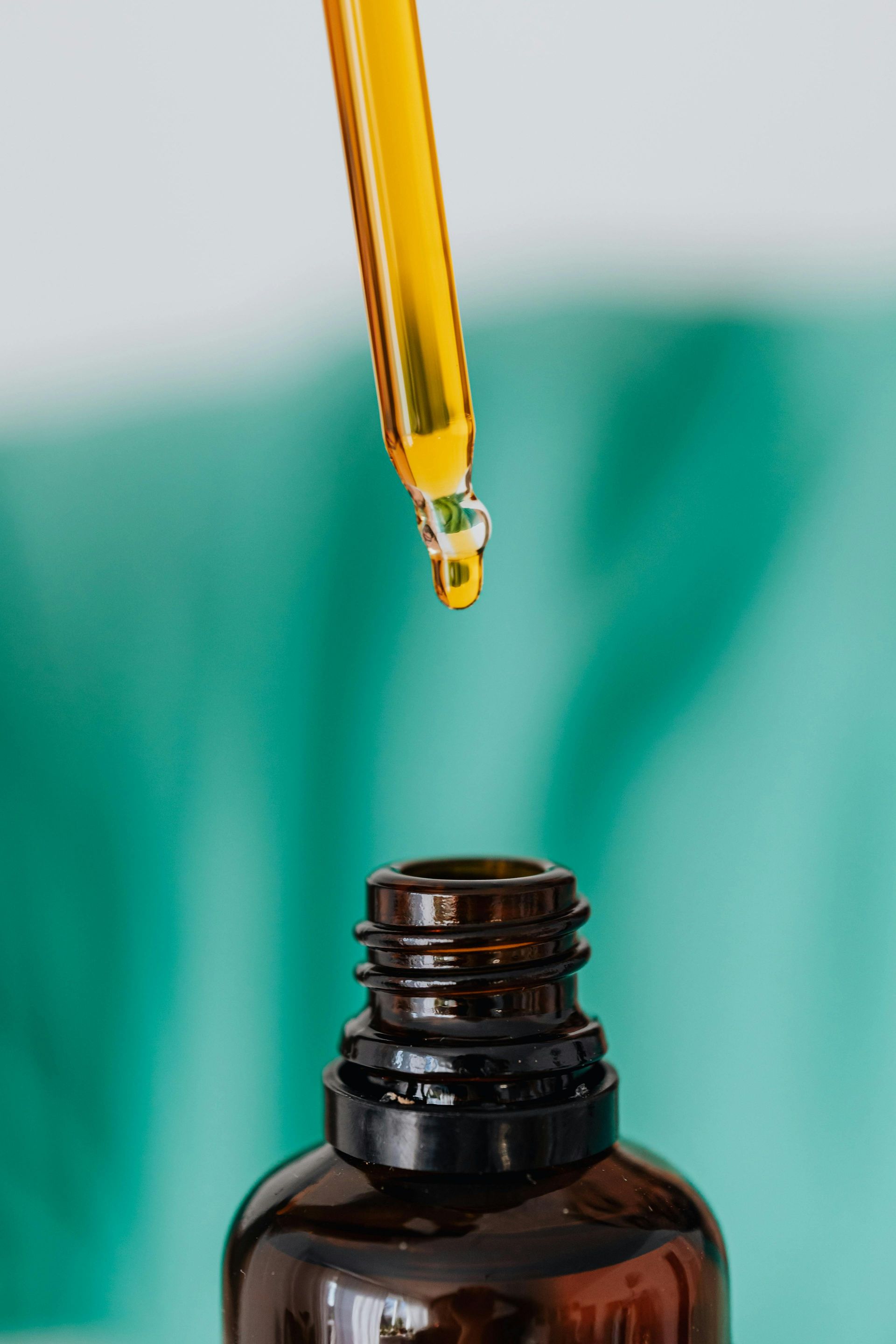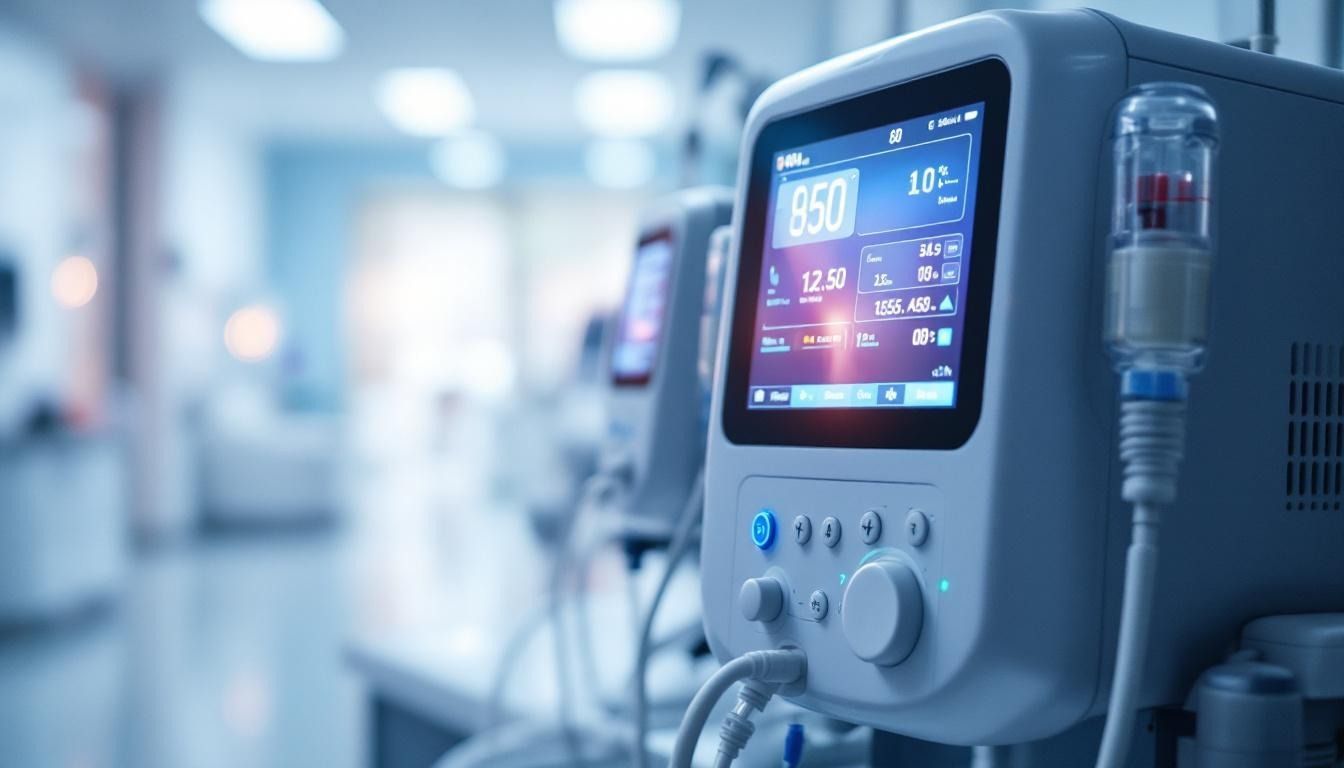How Parenteral Nutrition Can Support Patients with Crohn’s Disease
Understanding the Role of Parenteral Nutrition in Crohn’s Disease
Crohn’s disease (CD), a complex inflammatory bowel disease, often leads to severe nutritional deficiencies due to malabsorption, bowel resection, and ongoing inflammation. Managing these nutritional deficits is crucial for improving patient outcomes, reducing complications, and supporting recovery. Parenteral nutrition (PN), particularly total parenteral nutrition (TPN), offers a vital avenue for delivering essential nutrients directly into the bloodstream, bypassing compromised gastrointestinal pathways. This article explores how PN supports Crohn’s disease management, details its benefits and risks, and discusses clinical applications based on current evidence.
Benefits of Parenteral Nutrition in Crohn’s Disease Management
 Parenteral nutrition (PN) plays a vital role in supporting patients with Crohn’s disease, especially those suffering from severe malnutrition or complications like short bowel syndrome. It provides essential nutrients directly into the bloodstream, bypassing the damaged or obstructed gastrointestinal tract. This method maintains or restores nutritional status by supplying vitamins, minerals, and calories, which are crucial for overall health and recovery.
Parenteral nutrition (PN) plays a vital role in supporting patients with Crohn’s disease, especially those suffering from severe malnutrition or complications like short bowel syndrome. It provides essential nutrients directly into the bloodstream, bypassing the damaged or obstructed gastrointestinal tract. This method maintains or restores nutritional status by supplying vitamins, minerals, and calories, which are crucial for overall health and recovery.
One of the significant advantages of PN is its ability to support wound healing and tissue repair. Adequate nutrition enhances the body’s natural healing processes, reducing the risk of postoperative complications such as anastomotic leaks. Moreover, PN helps prevent weight loss and minimizes disease activity by ensuring the body receives sufficient nutrients, even when oral or enteral intake is not possible.
For patients unable to tolerate enteral feeding due to strictures, obstructions, or severe inflammation, PN can be lifesaving. It serves as a temporary or long-term nutritional support, especially during acute flare-ups or in the perioperative period. This support can stabilize the patient’s condition, making subsequent surgeries or treatments safer.
Research indicates that PN may also reduce the necessity for immediate surgical intervention by improving nutritional and immune status. In some cases, it facilitates remission and reduces the frequency of surgeries over time. Although it does not directly treat Crohn’s disease itself, PN’s role in stabilizing and supporting the patient’s health is crucial in comprehensive disease management.
In summary, parenteral nutrition’s primary benefits in Crohn’s disease include maintaining nutritional balance, supporting healing, preventing weight loss, and potentially reducing the need for surgery, especially in complex or severe cases.
Risks and Considerations in Parenteral Nutrition Use

What are the risks and considerations associated with parenteral nutrition in Crohn’s disease?
Parenteral nutrition (PN) plays an important role in managing severe cases of Crohn’s disease, especially when the gastrointestinal tract cannot absorb nutrients effectively. However, its use involves several risks and careful considerations.
One of the main concerns is infection. Since PN requires a catheter inserted into a large vein, it increases the risk of line infections, including bloodstream infections (sepsis). Proper sterile techniques and regular monitoring are vital to prevent such complications.
Venous thrombosis is another significant issue. The presence of a central line, such as a Hickman catheter, can lead to blood clots in the veins, which may cause further complications like vascular obstruction or embolism.
Metabolic disturbances are common, especially electrolyte imbalances, which can result from the high nutrient load or changes in fluid balance. Refeeding syndrome, although less common, can occur in severely malnourished patients if nutrition is reintroduced too rapidly.
Long-term PN use also raises concerns about hepatic health. Patients may develop liver problems such as fatty liver, cholestasis, or liver enzyme abnormalities, which require vigilant liver function tests and potential adjustments in therapy.
Another consideration is allergies. The only absolute contraindication to PN is allergy to components like eggs, which are used in some lipid emulsions. Screening for allergies before starting PN is an essential safety step.
Overall, the decision to initiate PN involves weighing these risks against the nutritional needs of the patient. Close interdisciplinary care, ongoing evaluation, and tailored treatment plans are crucial to mitigating these risks and supporting patient recovery.
Clinical Applications of Parenteral Nutrition in Crohn’s Disease

When should parenteral nutrition be considered for Crohn's disease patients?
Parenteral nutrition (PN), especially total parenteral nutrition (TPN), is an important tool in managing severe Crohn’s disease cases where the gastrointestinal (GI) tract cannot adequately absorb nutrients. It is primarily used when oral or enteral nutrition is not feasible, such as during bowel obstructions, complex fistulas, or in severe inflammation.
Patients with significant malnutrition, weight loss, or low serum albumin levels may benefit from preoperative PN to optimize their nutritional status prior to surgery, reducing the risk of postoperative complications like wound healing issues or leaks.
Post-surgery, PN can support patients who are unable to start oral intake within the first week, helping to prevent weight loss and promote recovery. It is also indicated in patients with extensive bowel resections leading to short bowel syndrome—where the remaining intestine cannot absorb enough nutrients—necessitating long-term TPN.
Furthermore, PN provides vital nutritional support for patients with bowel tumors, perforations, or those after bowel bypass surgeries, where the gut’s absorption capacity is compromised.
In summary, the decision to initiate parenteral nutrition should follow clinical guidelines, emphasizing its use when enteral nutrition is inadequate or contraindicated, and not as a standalone treatment for Crohn’s disease itself. It acts as a supportive therapy to manage nutritional deficits and improve overall outcomes in complex cases.
Supportive Role and Outcomes of TPN in Crohn’s Disease Patients

How does total parenteral nutrition (TPN) support management of Crohn’s disease?
Total parenteral nutrition (TPN) plays an important supportive role in managing Crohn’s disease, especially in severe cases with malnutrition or intestinal complications. It delivers nutrients directly into the bloodstream, bypassing the damaged or inflamed gut.
TPN helps correct nutritional deficiencies, which are common in Crohn’s patients—up to 70% experience malnutrition. By providing essential vitamins, minerals, fats, and carbohydrates, TPN supports overall health, promotes wound healing, and enhances recovery.
It is particularly valuable in cases of bowel obstruction, fistulas, or after significant bowel resection when the intestine cannot absorb nutrients effectively. TPN also allows bowel rest, decreasing inflammation and potentially reducing the risk of complications like fistula formation.
In the perioperative setting, TPN is used to improve the patient’s nutritional status before surgery, reducing risks like wound infection or anastomotic leaks. It also serves as a bridge therapy during severe flares or recovery phases, stabilizing patients when enteral intake isn’t feasible.
Studies show that nearly half of the patients receiving TPN avoid surgery altogether, reflecting its effectiveness in improving nutritional state and possibly leading to remission in some cases. However, TPN is not a cure for Crohn’s disease; it is primarily a supportive therapy.
Long-term TPN use is generally considered when patients have short bowel syndrome or cannot tolerate oral or enteral nutrition. Managing TPN involves multidisciplinary care, with focus on minimizing risks like infections, liver issues, and catheter-related complications.
In summary, TPN supports Crohn’s disease management through nutritional stabilization, promoting healing, and providing an alternative when the gastrointestinal tract cannot be used for feeding, ultimately improving patient outcomes and quality of life.
Future Perspectives and Research Directions
 Ongoing research in parenteral nutrition (PN) for Crohn's disease aims to refine and optimize its use. There is a recognized need for further studies on the most effective lipid emulsions, which could influence outcomes such as inflammation and liver health. Additionally, exploring the benefits of pre- and post-operative nutritional support tailored to mildly or moderately malnourished patients remains a priority.
Ongoing research in parenteral nutrition (PN) for Crohn's disease aims to refine and optimize its use. There is a recognized need for further studies on the most effective lipid emulsions, which could influence outcomes such as inflammation and liver health. Additionally, exploring the benefits of pre- and post-operative nutritional support tailored to mildly or moderately malnourished patients remains a priority.
Immunonutrition, which includes nutrients like arginine, glutamine, and omega-3 fatty acids, shows promise in potentially reducing inflammation and improving disease control, though more evidence is needed to confirm these benefits.
Early intervention with individualized nutritional plans, including timely PN delivery, can support faster recovery, lessen complication risks, and improve overall quality of life. Advances in home-based parenteral nutrition are also promising; they offer patients greater flexibility and comfort while aiming to minimize infection risks and the impact on daily living.
Research centered on personalized approaches, such as optimizing lipid formulations and exploring the role of enteral nutrition in disease modulation, is expected to further enhance clinical outcomes. Overall, future studies will help define best practices, reduce complications, and improve the therapeutic impact of nutritional support in Crohn's disease.
Optimizing Nutritional Support in Crohn’s Disease
Parenteral nutrition remains a cornerstone supportive therapy for patients with Crohn’s disease, especially those facing severe malnutrition, bowel failure, or complications preventing enteral feeding. Its careful application, continuous monitoring, and integration within a multidisciplinary care plan can significantly improve patient outcomes, facilitate recovery, and potentially reduce surgical interventions. Ongoing research into formulation improvements, early intervention strategies, and personalized approaches promises to further enhance the efficacy and safety of parenteral nutrition, making it an indispensable tool in the comprehensive management of Crohn’s disease.
References
- Use of Parenteral Nutrition in Patients with Inflammatory Bowel ...
- Role of total parenteral nutrition in the treatment of Crohn's disease
- Nutritional Support Therapy | Crohn's & Colitis Foundation
- Everything You Need to Know About Total Parenteral Nutrition
- Parenteral Nutrition, Inflammatory Bowel Disease, and Gut Barrier
- Treatment of Crohn's Disease with Home Parenteral Nutrition
- Treatment of Crohn's Disease with Home Parenteral Nutrition













